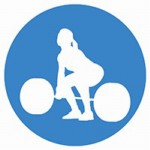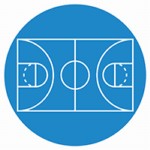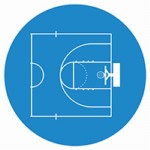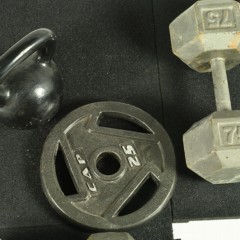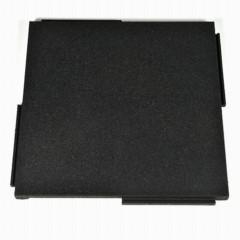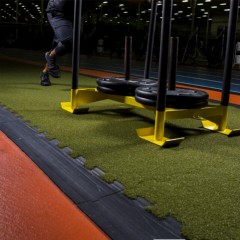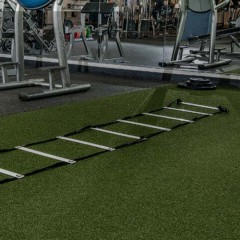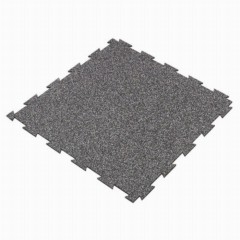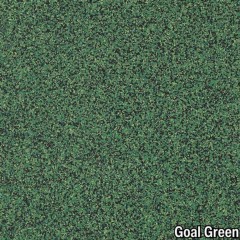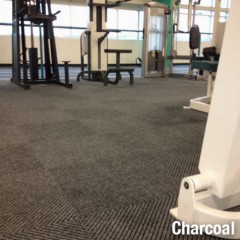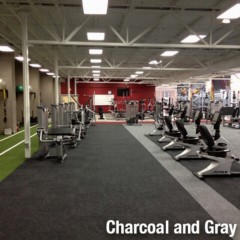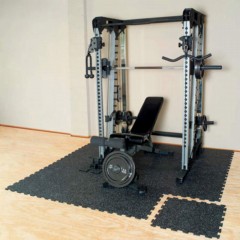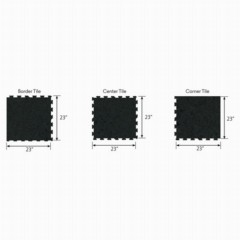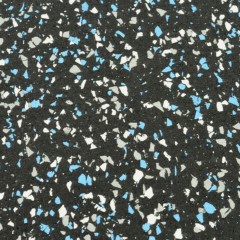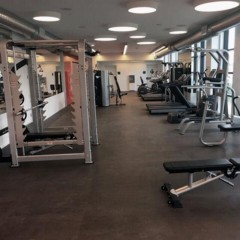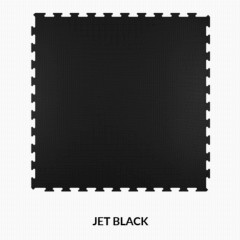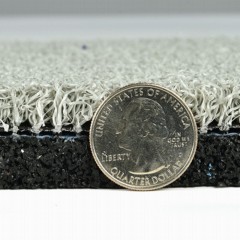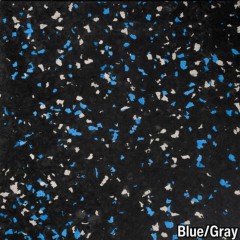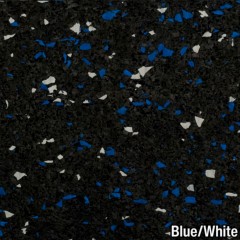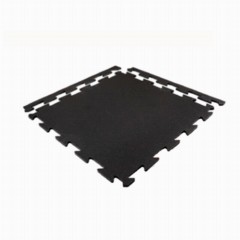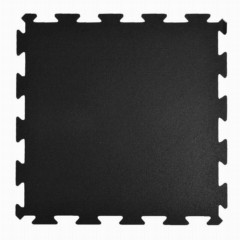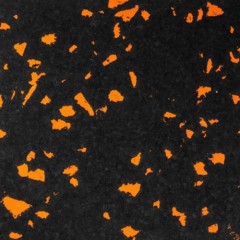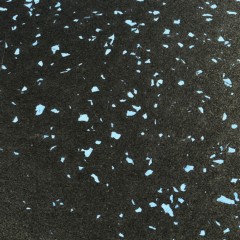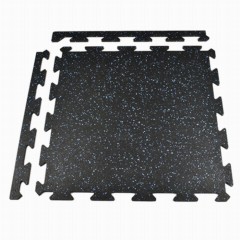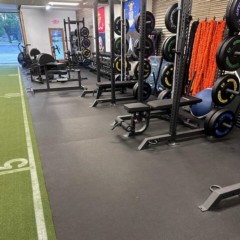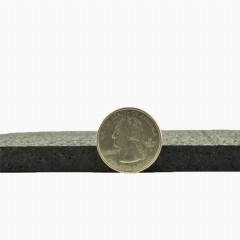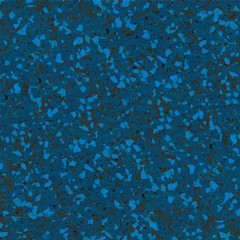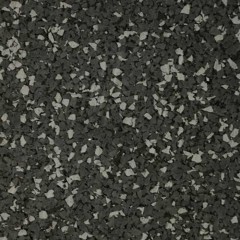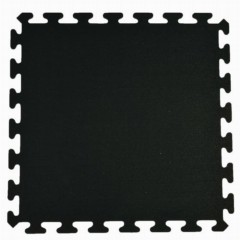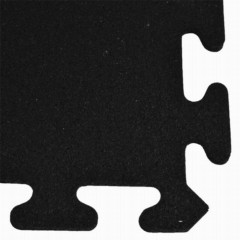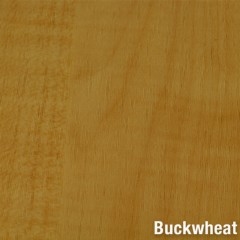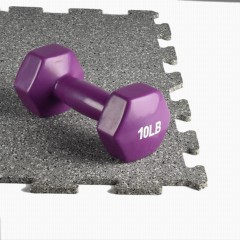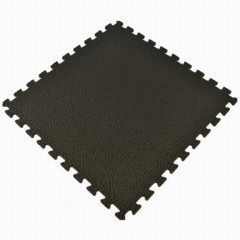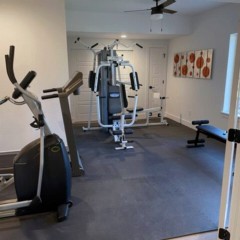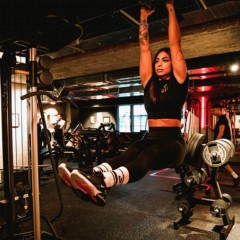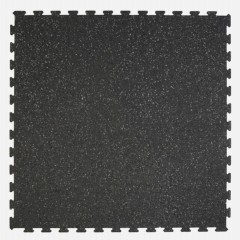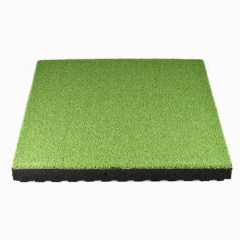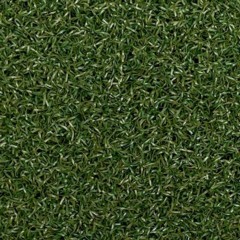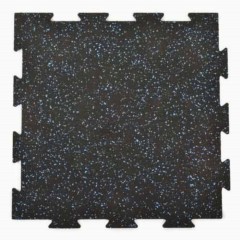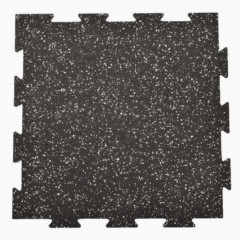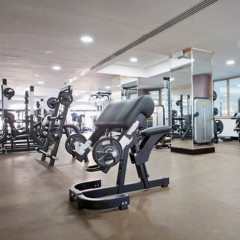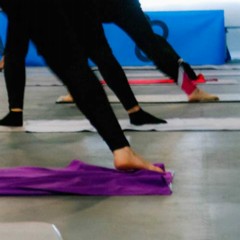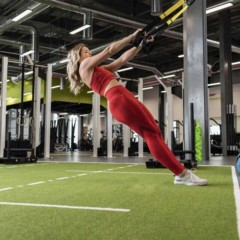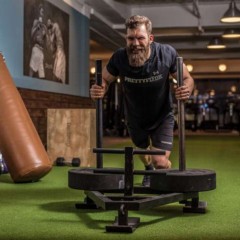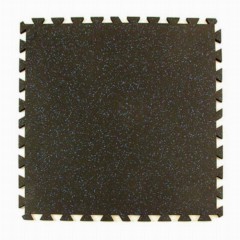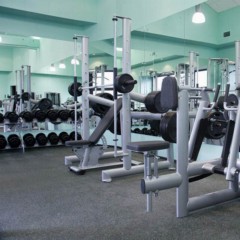Types of Gym Flooring
Gym flooring from Greatmats serves a wide range of potential use cases, giving commercial gym owners great value. These options also work for a home gym, such as in a basement or a garage.
Uses and Purpose
Commercial or residential exercise and workout spaces work better when you have the right type of gym floor in place. With so many choices in our online flooring catalog, you can create a functional space for multiple types of workouts, a specific space for your favorite type of workout, or something in between.
Types of Gym Flooring
You can select among multiple formats in the workout flooring, helping you match your preferred installation method and your budget, including:
- Tiles, which often interlock for a quick install.
- Mats, which work well under a heavy piece of equipment.
- Rolls, which quickly cover a large space at a good value.
Material Options
The best materials for exercise floors will depend partly on the intended use. They include:
- Rubber, which supports a lot of weight and is highly durable.
- Foam, which delivers cushioning and a quick, easy installation.
- PVC plastic, which has a mixture of some of the top features of rubber and foam.
Gym Flooring Q&A
What is the best flooring for a commercial gym?
Because of the protection they yield for the subfloor and because of the traction they give to the athletes,
rubber floor tiles for gyms work extremely well, especially when weightlifting or when exercise machines are in use. Some commercial gym owners prefer gym turf flooring for sled work and sprint workouts.
How thick should gym flooring be?
Versatility is a key component of interlocking gym mats. Our customers can pick from
multiple thickness measurements, ranging between 0.25 and 2 inches. Thicker gym matting provides noise dampening and guards the subfloor better than thinner flooring, but it also costs more.
Is EVA good for gym floor tiles?
Yes.
Foam flooring tiles are ideal for home gyms and exercise rooms. They consist of lead-free and latex-free EVA for a safe environment. The surface resists scuffing from shoes and boots, but we do not recommend it for barbells or heavy gym equipment. Constant pressure will indent it, and these indents will become permanent eventually.
How do you install rubber gym flooring tiles?
The puzzle-style edging on rubber gym floor interlocking tiles allows for a tight fit. Cut them for a perfect fit against a wall. We also offer options for pre-made straight edges without cutting through borders. Most people can
perform DIY installations with these materials.
 $1640 /Tile You Save 20%$4.23/sqftShips Out in 7-10 Working Days SustainableShop$1085 /Tile You Save 19%$2.50/sqftShips Out in 7-10 Working Days SustainableShop$1622 /Tile You Save 20%$4.18/sqftShips Out in 7-10 Working Days SustainableShop$1394 /Tile You Save 20%$3.21/sqftShips Out in 7-10 Working Days SustainableShop$235 /sqft You Save 20%Ships Out in 3-5 Working Days SustainableShop$872 /sqft You Save 19%Shop$1120 /Tile You Save 20%$2.89/sqftShips Out in 7-10 Working Days SustainableShop$3,68022 /Roll You Save 11%$10.22/sqftShips Out in 1-3 Working Days SustainableShop$3129 /Tile You Save 19%$8.53/sqftShop$635 /Tile You Save 38%$1.64/sqftShips Out in 1-3 Working Days Free ShippingShop$16220 /Tile You Save 9%$15.07/sqftShips Out in 3-5 Working Days SustainableShop$10254 /Tile You Save 19%$25.64/sqftShop$1243 /Tile You Save 20%$3.20/sqftShips Out in 7-10 Working Days SustainableShop$12710 /Tile You Save 9%$11.81/sqftShop$458 /sqft You Save 19%Ships Out in 11-14 Working Days SustainableShop$5090 /Tile You Save 19%$6.17/sqftShop
$1640 /Tile You Save 20%$4.23/sqftShips Out in 7-10 Working Days SustainableShop$1085 /Tile You Save 19%$2.50/sqftShips Out in 7-10 Working Days SustainableShop$1622 /Tile You Save 20%$4.18/sqftShips Out in 7-10 Working Days SustainableShop$1394 /Tile You Save 20%$3.21/sqftShips Out in 7-10 Working Days SustainableShop$235 /sqft You Save 20%Ships Out in 3-5 Working Days SustainableShop$872 /sqft You Save 19%Shop$1120 /Tile You Save 20%$2.89/sqftShips Out in 7-10 Working Days SustainableShop$3,68022 /Roll You Save 11%$10.22/sqftShips Out in 1-3 Working Days SustainableShop$3129 /Tile You Save 19%$8.53/sqftShop$635 /Tile You Save 38%$1.64/sqftShips Out in 1-3 Working Days Free ShippingShop$16220 /Tile You Save 9%$15.07/sqftShips Out in 3-5 Working Days SustainableShop$10254 /Tile You Save 19%$25.64/sqftShop$1243 /Tile You Save 20%$3.20/sqftShips Out in 7-10 Working Days SustainableShop$12710 /Tile You Save 9%$11.81/sqftShop$458 /sqft You Save 19%Ships Out in 11-14 Working Days SustainableShop$5090 /Tile You Save 19%$6.17/sqftShop